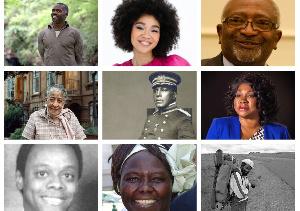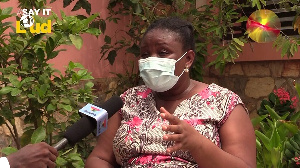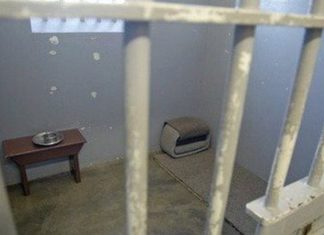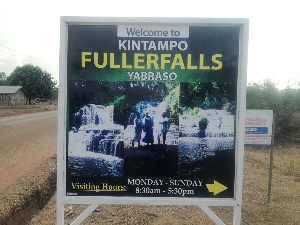Here are 10 Black environmentalists you need to know

A recent study shows that racial-ethnic minorities in the United States are exposed to excessively high levels of pollution, and the harmful impact of climate change.
Over the years, it has become clear that environmental issues do affect people of color differently, especially on issues related to environmental justice and discrimination.
In recognition of the hard work and great strides of experts in the field, here are 10 black environmentalists who showed admirable commitment to bringing solutions to the environmental problems they encountered.
Colonel Charles Young (1864 – 1922)

Charles Young was the first Black Colonel in the United States Army and was known as a strong protector of the great Sequoias in Sequoia National Park.
Young was born into slavery, however, through his father’s escape from slavery to join the Union Army in the Civil War, he was able to attend West Point Military Academy. He was the third black American to graduate from the academy and became the first black National Parks Superintendent.
He dedicated his life to protecting the environment and the Park, and led a group of African American park rangers called the Buffalo Soldiers, who fiercely kept poachers, illegal loggers, and ranchers away from the park.
Charles Young’s home in Wilberforce ‘Youngsholm’ became a National Historic Landmark in 1974. President Barack Obama later established his house and the farmland around it as a National Monument in 2013.
Hattie Carthan (1900 – 1984)

Hattie Carthan was a community activist and environmentalist who played an integral part in improving the quality of life of the Brooklyn, New York community; she was also fondly called ‘The Tree Lady of Brooklyn.’
Carthan was a Bedford-Stuyvesant resident who always had an interest in trees. She began planting trees in her neighborhood when she noticed the existing ones were dying. Through her newfound passion, she formed the Neighborhood Tree Corps organization in 1971 to teach young people how to care for trees.
She soon became the chairwoman of the Bedford-Stuyvesant Beautification Committee, which gathered 100 blocks of associations in a project that brought more than 1,500 trees to the neighborhood.
Hattie Carthan was the head of the section that protected the Southern Magnolia tree which became the symbol of the neighborhood. She succeeded in making it an official city landmark in 1970, and is one of only two trees to be given such honor.
She was awarded a distinguished service medal for her work to improve public parks and was elected to the governing committee of the Brooklyn Botanic Garden.
Wangari Maathai (1940 – 2011)

Wangari Maathai was a Kenyan environmental, social, and political activist. She founded the Green Belt Movement, an NGO in Kenya which focused on planting trees, environmental conservation, and women’s rights in 1977.
Maathai was compelled by the notion that there was a connection between environmental degradation, poverty, and conflict. To effect change in the environmental degradation she witnessed in her country, Maathai mobilized poor women and paid them for every tree they planted which had survived beyond three months.
Her band of women planted over 30 million trees and inspired the United Nations to launch a campaign that led to the planting of 111 billion trees around the world. Her movement also helped women to stand up for themselves and their work in a society where patriarchy was dominant.
Wangari Maathai received the 2004 Nobel Prize for Peace, making her the first Black woman to win the award.
MaVynee Oshun Betsch (1935 – 2005)

MaVynee Oshun Betsch was an environmental activist known as the ‘Beach Lady.’ She was known for her active, persistent fight in protecting and preserving American Beach – a historically African American beach on Florida’s Atlantic Coast.
Betsch had a personal attachment to the beach. Her great-grandfather, Abraham Lincoln Lewis co-founded the Afro-American Insurance company and became Florida’s first black millionaire. He built a beachside community as a resort spot for his employees and black families on American Beach, where Betsch spent most of her childhood days.
She left her budding career as a singer and came back to Florida because she felt something was calling her back to the beach. She moved into her grandfather’s beach house in 1975 and started her career as an activist and conservationist, and eventually sold her family home; sleeping in a chair on the beach instead.
She wore her hair in an enormous lock that stretched to her ankle, and also added an ‘E’ and removed the ‘R’ in her name to protest Reagan Administration’s environmental policies. In 2022, The National Park Service added American Beach to its National Register of Historic Places. A museum preserving the legacy of the beach was also opened in 2014.
John Francis (1946 – Present)

John Francis is a National Geographic Society education fellow, American environmentalist, and author; popularly called “The Planetwalker.”
He found interest in geography and the love of the outdoors through his travels, and witnessed an oil spill in San Fransisco Bay, California in 1971. This experience affected him so much, causing him to stop using motorized transportation.
He made a decision to walk for 22 years, and spent 17 years out of the 22 in silence, listening to people’s views on the impact of environmental issues in their lives. He founded Planetwalk, an organization solely aimed at sponsoring walks to promote environmental education, responsibility, and a vision of world peace and cooperation.
Francis’ activism led to the beginning of America’s legislation and policies on oil spill management.
Dr. Robert Bullard (1946 – Present)

Dr. Robert Bullard is a Professor, sociologist, and environmental activist, known as the father of the environmental justice movement. He has authored eighteen books on sustainable development.
Growing up, Bullard was well aware of the environment and outdoors. He loved the idea of clean pristine rivers, although he wasn’t yet an environmentalist. He developed a love for the environment when his wife asked him to collect data for a lawsuit that involved the placement of garbage facilities in mostly black Houston neighborhoods – the very first lawsuit that charged environmental discrimination using federal civil rights. His research inspired him to look into careers in the environmental field.
Bullard received many awards, including the Conservation Achievement Award, the Building Economic Alternatives Award, the Stephen Schneider Award for Outstanding Climate Science Communication, and the 2020 Lifetime Achievement Award, among others. He was also conferred many honorary degrees.
He is also recognized as one of the thirteen “Environmental Leaders of the Century.” He was a significant influence in President Clinton’s signing of Executive Order 12898, the first legal document that defined the need for environmental justice in the United States.
Norris McDonald (1958 – 2021)

Norris McDonald was an American environmentalist and founder of the African American Environmentalist Association (AAEA), as well as the first black environmentalist to work as a professional in the Washington D.C. area.
He quickly noticed the lack of black professionals working for the environmental groups in the region; this was his inspiration to create the AAEA in 1985.
His organization is one of America’s oldest African-American-led environmental organizations. The group is dedicated to protecting the environment, enhancing human, animal, and plant ecologies, promoting the efficient use of natural resources, and increasing African American participation in the environmental movement.
Norris received many awards including the Environmental Magazine Award, the Conservation Award from the National Wildlife Federation, and the Green Room Energy and Environmental Leadership Award. He was listed by Ebony in 2012 as one of America’s top 100 most influential African Americans.
He also spearheaded the creation of the U.S. Environmental Protection Agency’s Office of Environmental Justice.
Dr. Beverly Wright

Beverly Wright is an environmental justice scholar and advocate, author, civic leader, and professor. She is also the founder and executive director of the Deep South Center for Environmental Justice.
Wright was born and raised near the lower Mississippi River, an area known as Cancer Alley. She understood environmental justice from her experiences growing up in a hazardous area and witnessing an inequitable distribution of pollution in her community.
She established her organization to address environmental and health inequities along the Louisiana Mississippi River Chemical Corridor and the Gulf Coast Region. She provides education, health and safety training, as well as job placements for residents in environmental justice and climate-impacted communities within the United States.
In recognition of her service, Wright was awarded the Robert Wood Johnson Community Health Leadership Award, the Environmental Justice Achievement Award, and the Heinz Award, among others. She also made TheGrio list of 100 History makers.
Dr. Wright has also co-authored books with Richard Bullard that focus on environmental justice issues.
Ibrahim Abdul-Matin

Ibrahim Abdul-Matin is an environmentalist and the author of ‘Green Deen’. He is also a policy advisor in the New York City Mayor’s Office on issues pertaining to long-term planning and sustainability.
Abdul-Matin grew up in Brooklyn; for his first five years of life, he assumed the world was a sea of concrete buildings. He found his calling to protect the planet when he went on a hike on Bear Mountain with his father. From that experience, he began to view the Earth as a space Allah created for His worship. He believes that destroying the Earth is disrespectful to Allah’s creation.
Ibrahim Abdul-Matin has received numerous awards and recognitions, including, the National Urban Fellow and Green for All Fellow. City & State Magazine called him one of the 40 Under 40 Rising Stars in New York City Politics.
Mikaela Loach (1998 – Present)

Mikaela Loach is a trainee doctor and a climate justice activist who uses social media to raise awareness. She is also the author of ‘It’s Not That Radical: Climate Change Action to Transform Our World.’
Loach finds her inspiration from the ordinary people doing the non-glamorous quiet work of building revolutionary change. Her journey in activism began while she was at school in Surrey. She volunteered at the Calais camps, folding clothes and chopping wood to support the displaced communities living there.
Loach joined Extinction Rebellion Scotland and got involved in actions that ranged from occupying streets in London to chaining herself to a stage. She also connected with activist, Kairin van Sweeden, and former refinery worker, Jeremy Cox, who are also passionate about her cause to subsidize fossil fuel.
Loach has been hailed as a leading influencer in the UK climate movement by Forbes, Global Citizen, and BBC Woman’s Hour.
Source: face2faceafrica.com





